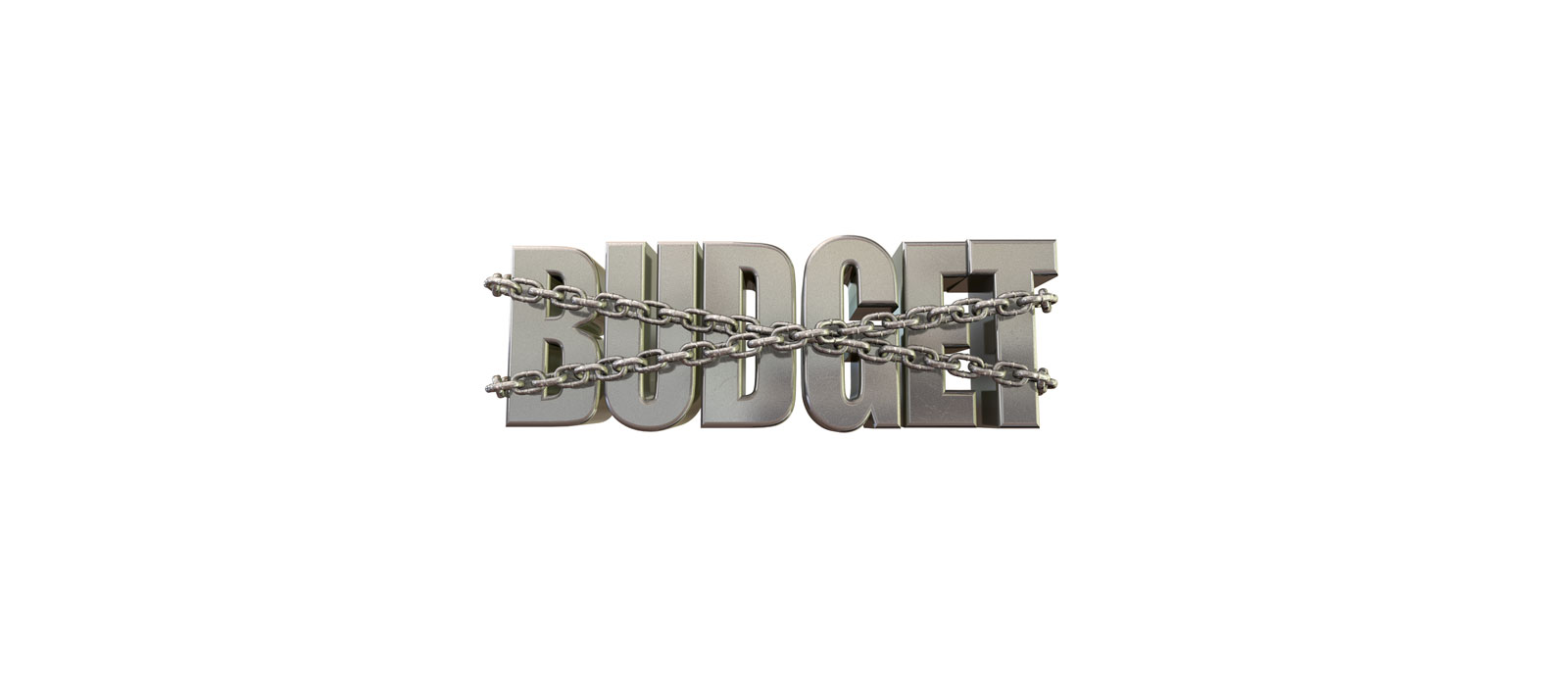Learn about how we can help ease your budgetary pressures with our technology rentals
Business budget constraints during turbulent times
No matter what the circumstances, there will always be budgetary constraints in a business operation. Business budget management becomes even more important during turbulent times, and few periods have been as volatile as the current high interest rate environment! Here we look at some practical budgeting tips for businesses that will help you emerge stronger than ever.
Tech rentals and budget constraints
Whenever you need to cut down on your budget, renting equipment is a logical solution. This is particularly true in the case of technology, where obsolescence is a major issue, or when you need a certain amount of flexibility.
The biggest benefit for your financial budget is a low monthly fixed cost, rather than fluctuating expenses. This makes it easier to track what your actual spending is, and therefore to budget accordingly.
Hire Intelligence offers a host of tech hire solutions for organisations of every size, even down to the humble home-office:
- Mobile phone rentals
- iMacs and MacBooks for hire
- Desktop computers for rent
- Monitor rentals
- Laptops and notebooks rentals
- Video conferencing solutions
- Office printers for rent
- Tablets and iPads for hire
- And many more!
How to manage a company budget during tough times:
Start by looking at your annual budget, especially expenses and revenue. Small businesses, in particular, should take into serious consideration any suggestions for improving their budgeting system.
Another place to look at in your budget is capital expenditure with an eye to what can be postponed until the situation solidifies. Look at your supplies on hand and try to anticipate what may become in short supply; include raw materials necessary for your stock. There is a difference between having a buffer of materials and hoarding.
If you anticipate cash flow problems, see if you can negotiate some extension in payables. At the same time take a look at your receivables and see what can be managed. Be sure that your invoicing is accurate because refunds can reflect poorly.
Investigate how you can advertise at a lower expense. Social media has a great impact on attracting customers and can also serve to demonstrate your service capabilities or client support.
And of course, don’t forget to look to tech rentals to help decrease large and unpredictable variable costs.
Benefits of smart budgeting for your business
Learning how to manage a budget for a business of any size is a crucial skill for any business owner. It helps plan and control the financial health of the company. It will let you see where the money should be spent versus where it is being spent. This will include all operating expenses and all income.
Through review and analysis you can see patterns in spending and revenue; it can help you plan for times when money is scarce and seasonal increases. It should also help you decide when it is strategically advantageous to expand.
A budget will also be a key component of any business plan that you submit to potential lenders and investors.
Tips to reduce your business’s budget (while still being innovative)
- When it comes to budgeting tips for businesses, your first step should be to look at the historic data for your company and try to find patterns. Ask your employees. Because they are on the front lines, they may notice discrepancies and have ideas about innovations from their perspective.
- Estimate your business expenses toward the higher numbers rather than rounding down. Consider investing in budgeting software to help with business planning. Many programs will give you ideas of where to spend and where to reduce.
- Examine areas where large variable costs could be exchanged for a more affordable and predictable fixed cost. A perfect example of this is where you could be renting expensive equipment rather than purchasing it. Not only does this prevent big expenses from throwing off your balance sheet, it also means you can take advantage of built-in technical support and maintenance at no extra cost. At Hire Intelligence, we offer a vast selection of IT and AV equipment for hire to help you keep your operating budget in control.
- If you feel constrained by HR directives about reducing underperforming employees, think about transferring them to another position.
- Check management expenses. Is it possible that managers could spend less time supervising and more time performing the tasks of the department? Working managers will receive more respect from their staff and the managers will better understand the nuances of the job.
It’s also important to know which business expenses not to cut. Don’t automatically cut back on your marketing budget, for example, without first running the numbers. If a channel brings in $5 for every $1 you spend on it, for instance, cutting your spend here would be counterproductive.
Get in touch with us and let’s discuss exactly how our technology rental solutions can help your budget today.
FAQs iT Rental
My budget has been cut and I can no longer invest in new hardware for my business. What should I do?
Firstly, consider renting the tech you need. This is a far less expensive option than purchasing it outright. Since technological hire offers so many benefits and a lot of flexibility, you may even find yourself continuing to rent even once your budget has recovered!
Hire Intelligence offers a variety of rental solutions for your business or home office, all at a low monthly fee!
I need to develop a Proof of Concept – can tech rentals help me with that?
A Proof of Concept is a test to see if a plan is feasible; a dry run. If you need hardware for it, then rentals can definitely help, and they are generally better than purchasing. If you are looking at personnel, it depends on the expertise of your in-house techies and the experience and savvy of the temp you will pay for.
How can I identify areas of savings in my business?
Finding extra money starts with knowing how to manage your budget for your business. First, realise that it likely won’t be a single item, but a series of cuts. You have probably already identified discretionary spending and frills and eliminated them.
If it is possible, renegotiate your rent or find less expensive space. If you have extra, unused space, sublet. Look at all the perks and see what can be reduced or eliminated. Items to avoid cutting are staff (even giving a minimal raise is better than a lay off) and IT security.
What are some things I should look at doing if my sales have decreased?
There are a number of ways you can react when sales start to decrease and you are worried about turning a profit.
First, be sure you are using all the technology available to you and to its best advantage. There are a number of tools, including reasonably priced apps, that can help. And if your technology is outdated, consider selling it off and renting newer models instead.
Revisit your sales techniques. If you are using robocalls, consider if it is worth the expense when compared to the number of conversions you attain. Revisit (but don’t hound) potential customers. Remember – building a relationship can take time and effort.
Many customers purchase based on emotions. If your follow up or customer service is not up to par, they may be considering other vendors. Consider adding some type of value to your product or service.
Look at your advertising and think about other methods as well as how to distinguish your company from the competitors.
What is the cash survival ratio and how can it help me?
A cash ratio only looks at the availability or liquidity of your cash or cash-like assets and how that money compares with your ability to pay any short term debts. Similarly there is “burn rate” which is how long your business can survive until sales catch up. These factors will tell you if you have a viable business operation. If your company is taking too long to generate enough cash flow to meet monthly business expenses, it’s important to focus on finding better solutions for cash flow management.
What can I do to reduce my fixed costs?
Sometimes referred to as overhead, these are the expenses you have every month like rent, insurance payments, salaries, interest payments, utilities, etc. During periods like the coronavirus outbreak, those fixed expenses continue to be due while your company’s revenue is greatly impacted. Here are some ways to reduce them:
- Premises rent – Discuss your situation with your landlord. See if there is less expensive space or whether you can sublet sections of your facility to offset your cost.
- Insurance – Check with your agent to see if you qualify for any discounts or can reduce your coverage amounts.
- Loans – Many lenders are allowing payment deferrals. Eventually you will need to catch up, but for the short term you will get a little relief.
- Salaries – This is probably your highest expense and the first place an employer looks to cut.
- Trade-outs – See if you can barter for services instead of using cash.
- Asset rent – By focusing on renting your assets rather than buying them, you’ll be able to minimise depreciation while still being able to use the latest, most powerful equipment in your industry.
How can I set realistic targets for my business during the COVID-19 outbreak?
It’s important to remember that many of the challenges you’re seeing right now won’t be with us forever. Focus on what you can control, like…
- Communication – Strong communication with your sales team and the ability to work with pricing and service are key factors. All of this should be within the guidelines of health and safety.
- Staying Calm – Despite the fluidity of the situation, leaders should take the time to think through strategies and tactics. Small businesses may not have contingency plans but it is important to think through the steps of both supply and demand.
- Exploring Virtual Sales – Fortunately we live in a technological world that allows quick transmission of photos, virtual meetings, and electronic payments, meaning that taking your business model digital may be a good avenue for you.
- Focussing on the Future – As much as possible, it should be a goal to rebound as best as possible. Phased in approaches are being implemented but there is the reality that a shutdown can recur quickly.
What is zero-based budgeting and will it improve my budget?
A zero-based budget is a budgetary system that does not rely on previous data, but starts from zero each new period. It requires that all business expenses be listed as they are added to your log and if the expense is not fully justified, it is not included. So, each item is reanalysed each period (month, quarter, etc.) and examined for needs and cost.
This is very time consuming but when performed at least every year or two, or in times of financial distress, it can pinpoint expenses that can be eliminated and help the business owner spend money effectively.
This type of analysis looks carefully at cost and benefits. It can also help to allocate resources where they are needed and purge redundancies. However, it can be detrimental to long-term goals and entrepreneurial tactics. It can also cause personality conflicts between departments justifying particular expenses, so we’d first recommend focussing on reducing your overheads where possible.
Hopefully by now you’re ready to start managing your business’s budget with confidence. For further guidance, contact us today, and



